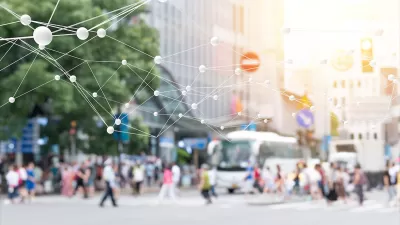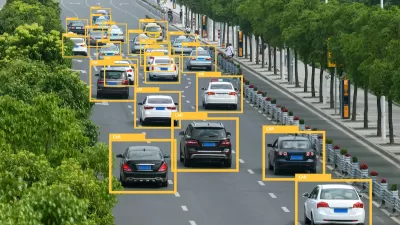Like other technologies, artificial intelligence tech seems to be clustering in a small group of cities, prompting questions about its uneven deployment.

Artificial intelligence, writes Richard Florida, "is predicted to have substantial economic impacts, adding as much as $15.7 trillion to global economic output by 2030." According to "a new Brookings Metro study that digs into the geography of AI at the metro level," AI "threatens to reinforce or magnify the same geographically uneven patterns of previous high-technology industries that are concentrated in leading tech hubs and superstar cities across the U.S."
The study finds that "just 10% of U.S. metropolitan areas — 36 of them — have a significant AI presence." The San Francisco Bay Area is "far and away the lone U.S. leader in AI." Thirteen other metro areas have "significant AI clusters, which the study calls early adopters." The study names "21 additional metro areas that have substantial research capability but limited commercialization," and a fourth group comprised of "87 metro areas that the study dubs 'potential adoption centers' with more moderate levels of AI activity." Beyond that, "the study finds very little, if any, significant AI capability in the lion’s share of U.S. metro areas, a staggering 260 of them in all."
In a hopeful sign, "[s]everal metro areas saw significant increases in AI-related job postings in 2020, while the Bay Area saw a slight decline. It may well be the case that geographic shifts in AI technology, jobs or startups may not show up in data for several years." But for now, AI's growth mirrors that of other technologies, where "new technologies and industries grow up around a small number of dominant tech hubs."
According to Florida, "[f]ederal intervention will likely be required to counter and reshape the powerful trends at work in the geography of artificial intelligence." Otherwise, "[l]eft to its own devices, AI is just the latest technology that will serve to reinforce and exacerbate the winner-take-all nature of our economy and geography."
FULL STORY: What the AI Economy Means for Cities

Alabama: Trump Terminates Settlements for Black Communities Harmed By Raw Sewage
Trump deemed the landmark civil rights agreement “illegal DEI and environmental justice policy.”

Planetizen Federal Action Tracker
A weekly monitor of how Trump’s orders and actions are impacting planners and planning in America.

How Atlanta Built 7,000 Housing Units in 3 Years
The city’s comprehensive, neighborhood-focused housing strategy focuses on identifying properties and land that can be repurposed for housing and encouraging development in underserved neighborhoods.

In Both Crashes and Crime, Public Transportation is Far Safer than Driving
Contrary to popular assumptions, public transportation has far lower crash and crime rates than automobile travel. For safer communities, improve and encourage transit travel.

Report: Zoning Reforms Should Complement Nashville’s Ambitious Transit Plan
Without reform, restrictive zoning codes will limit the impact of the city’s planned transit expansion and could exclude some of the residents who depend on transit the most.

Judge Orders Release of Frozen IRA, IIJA Funding
The decision is a victory for environmental groups who charged that freezing funds for critical infrastructure and disaster response programs caused “real and irreparable harm” to communities.
Urban Design for Planners 1: Software Tools
This six-course series explores essential urban design concepts using open source software and equips planners with the tools they need to participate fully in the urban design process.
Planning for Universal Design
Learn the tools for implementing Universal Design in planning regulations.
Jessamine County Fiscal Court
Caltrans
Institute for Housing and Urban Development Studies (IHS)
City of Grandview
Harvard GSD Executive Education
Toledo-Lucas County Plan Commissions
Salt Lake City
NYU Wagner Graduate School of Public Service





























